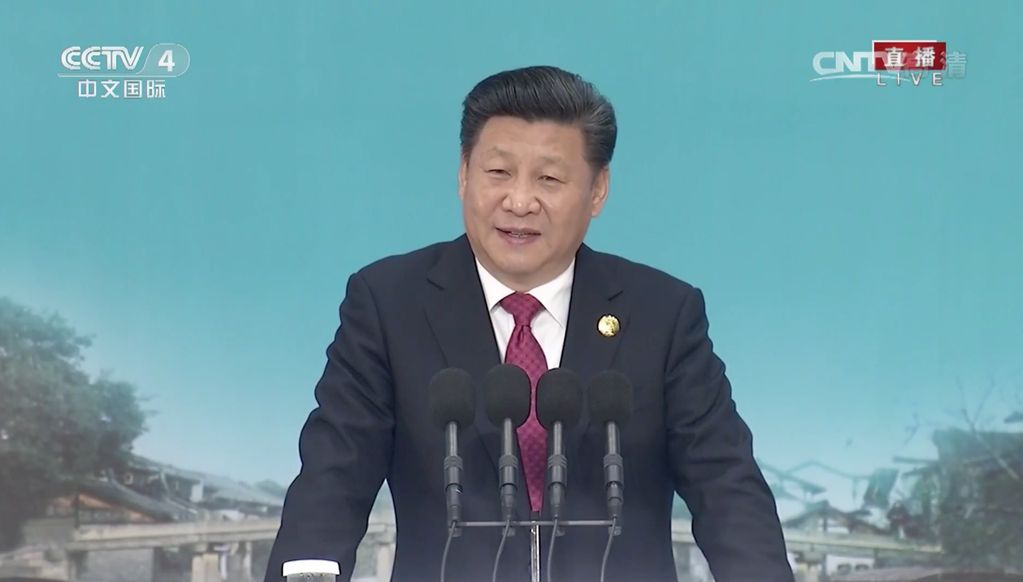‘Picking quarrels and provoking troubles’—it may seem trivial at first glance, but in China a conviction for what sounds like bickering could put you behind bars for a decade.
With increasing frequency, this oddly named law is also being used to silence critics of the Chinese government. Labour activist Lin Dong, lawyer Cao Shunli, writer Tie Liu and—most recently—celebrated human rights lawyer Pu Zhiqiang are just some of the more prominent public figures to fall foul of the offence in the three years since China’s President Xi Jinping assumed power.

On September 14, 2013, Cao Shunli was taken from Beijing airport as she prepared to board a flight to Geneva to take part in a conference on human rights. Held under the ‘picking quarrels’ charge, Cao died two weeks before she turned 53, denied medical help for her tuberculosis, liver disease and uterine fibroids.
In April the following year, lawyer Wang Quanping was detained on the same charge after he drove the length of the country to attend a trial of activists in Guangdong. Labour rights activist Lin Dong also fell foul of the law later in the same month, after he helped organise strikes of tens of thousands of factory workers in Dongguan. It was also the offence for which citizen journalist Xiang Nanfu was targeted the following month, put under house arrest and then paraded on state TV.
Pu, detained almost 19 months ago, represented victims of “re-education through labour” camps as well as dissident artist Ai Weiwei. He was first detained on suspicion of “picking quarrels and provoking troubles” in May 2014, after he attended an event commemorating the Tiananmen Square Massacre of 1989.
A ‘pocket crime’ for all occasions
The law—one of a series of related offences referred to as “disturbing public order”—is based on Article 293 of China’s 1997 amended Criminal Law, which lays out four prohibited activities (official translation):
- Willfully attacking another person and the circumstances are bad;
- Chasing, intercepting, or cursing another person, and the circumstances are bad;
- Forcibly taking away, demanding, or willfully damaging or seizing public or private property; and the circumstances are serious;
- Creating a disturbance in a public place, causing serious disorder.
The cases against Pu and others generally hinge on the fourth item. While Article 293(4) normally carries a maximum sentence of five years, this can be extended to ten if the defendant organises others to commit the disturbance several times.

Article 293, however, has been criticised as a “pocket crime” – that is, an offence into which almost any action can be fitted that is frowned upon by the authorities – with its deliberate obfuscation of language.
More and more often, a broad new interpretation of the law has been used to police online speech and tighten the Communist Party’s grip on society.
The legal definition of “picking quarrels” was expanded by the Supreme People’s Court and Supreme People’s Procuratorate Joint Interpretation of Article 291 in July 2013, which declared that it could refer to any incident where “the perpetrator creates trouble from nothing… blowing off steam or acting brutish.”
Guilty until proven innocent
As for what constitutes “serious circumstances,” anything said to “undermine social order by […] intimidating others” will fit the bill.
Unlike in much of the Western world—and, of course, Hong Kong—where suspects are considered innocent until proven guilty, the assumption in Chinese courts is that the suspect, by virtue of having been arrested and charged, is almost certainly guilty, and the only way out for them is to confess. In other words, they are guilty until proven innocent—and proving oneself innocent is a surprisingly difficult feat.
The vague wording of so much legislation and the imprecise definitions of crimes leave much room for discretion for the law enforcement and prosecution authorities. For offences such as “picking quarrels and provoking troubles,” the wording so vague it is almost impossible to disprove—once charged, guilt is virtually guaranteed.
Once the police have determined your guilt, the role of the judiciary is simply to determine the length of your sentence. China’s criminal trial conviction rate of 99.9 percent, one of the highest in the world, reflects this assumption.
“Rule of law” with Chinese characteristics
“Rule of law” has become one of the ubiquitous catchphrases of the Xi Jinping administration, at the core of his trumpeted “China Dream.”
However, this has not meant that the law has protected the rights of individual citizens. On the contrary, the law is increasingly used by the government to control civil society.
On the eve of International Women’s Day in March, the arrest of the Feminist Five—organisers of a campaign against sexual harassment on public transportation—was also justified on the grounds they were “picking quarrels.”
After the women were taken in a set of coordinated raids in Beijing, Hangzhou and Guangzhou, their lawyer said that his clients had “done nothing that would constitute ‘picking quarrels and provoking trouble’.”

In the same interpretation that broadened the scope of article 293, it was also made clear that any disturbance caused by picking a quarrel must take place in some kind of public venue, and not merely within an online community. Even by the vague terms laid out in this all-purpose law, their detention was seemingly impossible to justify.
Such niceties matter little, however, to those who regard the law as a weapon for the powerful rather than the shield of the powerless. As the proclamation of Xi Jinping’s “internet management” vision at this year’s World Internet Conference has foreshadowed, the use of such laws to criminalise online dissent looks set to become more commonplace as the “China Dream” turns into reality.
